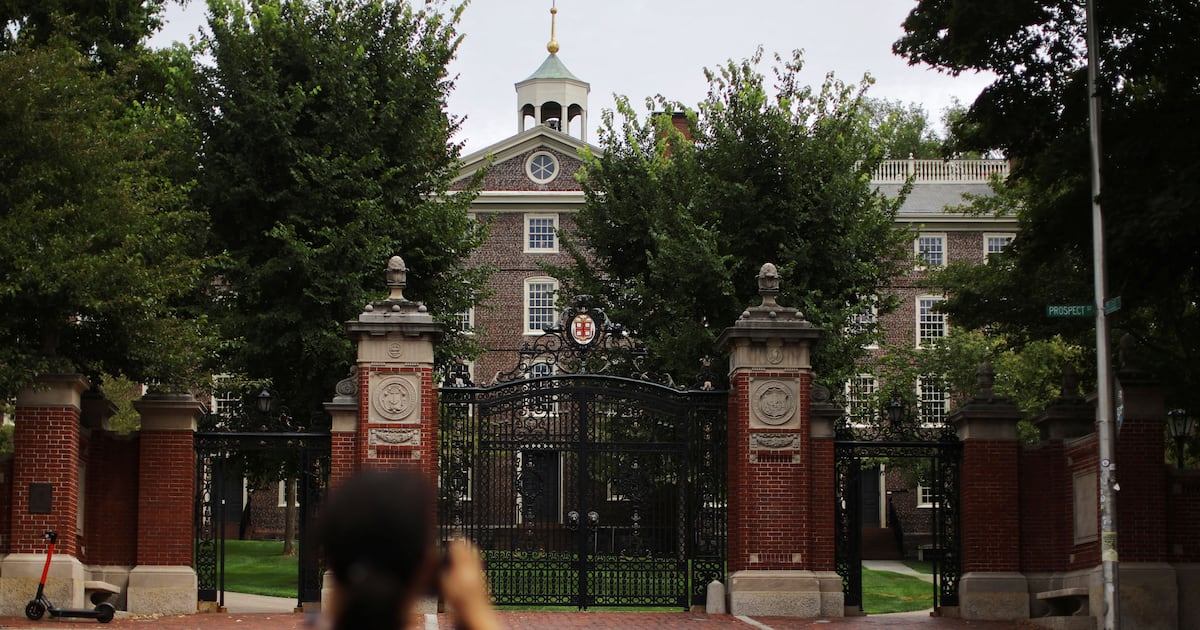Education
Seven Universities Reject White House Funding Compact Demands

The ongoing debate over academic freedom and institutional autonomy in higher education intensified as seven universities declined a White House proposal aimed at expanding federal funding. On October 1, 2023, the Trump administration sent letters to nine institutions, offering potential funding in exchange for compliance with a series of policy changes. Among these changes were the elimination of sex and ethnicity considerations in admissions and a cap on international student enrollment.
The University of Arizona was the latest institution to reject this offer, with President Suresh Garimella stating in a letter to Secretary of Education Linda McMahon that the university does not seek preferential treatment. “We believe in our ability to compete for federally funded research strictly on merit,” Garimella asserted. Other institutions that have also declined include the University of Virginia, the University of Southern California, the University of Pennsylvania, Brown University, Dartmouth College, and the Massachusetts Institute of Technology.
Details of the Proposal
The compact, described by the White House as an opportunity to “proactively improve higher education for the betterment of the country,” has generated significant backlash. The letter to the universities outlined demands that included not only changes to admissions policies but also a commitment to “grade integrity,” a five-year freeze on tuition increases, and a 15 percent cap on international students. Institutions agreeing to the compact would gain priority for federal grants and invitations to White House events.
The proposal aims to reshape campus ideologies by promoting a “vibrant marketplace of ideas,” according to a document obtained by CNN. It mandates that universities assess faculty and staff viewpoints and adopt definitions of gender based on biological criteria. Additionally, schools would be required to eliminate programs perceived to punish or undermine conservative views.
Reactions from Higher Education Leaders
Responses from the universities have varied, but a common theme is concern over the implications for academic freedom. Sian Leah Beilock, President of Dartmouth College, emphasized the need for universities to govern themselves according to their missions. “I do not believe that a compact—with any administration—is the right approach to achieve academic excellence,” Beilock stated.
The University of Virginia’s interim President, Paul Mahoney, also expressed reservations after attending a meeting at the White House. Mahoney indicated that the best path forward lies in open dialogue rather than imposed agreements. Similarly, J. Larry Jameson, President of the University of Pennsylvania, noted that the decision followed extensive feedback from the university community.
USC’s interim President, Beong-Soo Kim, raised alarms about the potential erosion of academic values. “Tying research benefits to the compact would, over time, undermine the same values of free inquiry and academic excellence,” Kim wrote in his response to McMahon.
In contrast, the University of Texas at Austin has not publicly committed to the compact but expressed eagerness to explore the opportunity presented.
The White House has framed recent discussions with university officials as productive, leaving it to each institution to make its choice. As the deadline for initial signatories approaches on November 21, 2025, the responses of remaining universities remain uncertain.
The rejections of the compact highlight the ongoing tensions between federal oversight and institutional autonomy in U.S. higher education. With many schools already facing funding disputes with the Trump administration, the stakes are high as they navigate these complex demands while preserving their core principles.
-

 Education3 months ago
Education3 months agoBrandon University’s Failed $5 Million Project Sparks Oversight Review
-

 Science4 months ago
Science4 months agoMicrosoft Confirms U.S. Law Overrules Canadian Data Sovereignty
-

 Lifestyle3 months ago
Lifestyle3 months agoWinnipeg Celebrates Culinary Creativity During Le Burger Week 2025
-

 Health4 months ago
Health4 months agoMontreal’s Groupe Marcelle Leads Canadian Cosmetic Industry Growth
-

 Science4 months ago
Science4 months agoTech Innovator Amandipp Singh Transforms Hiring for Disabled
-

 Technology3 months ago
Technology3 months agoDragon Ball: Sparking! Zero Launching on Switch and Switch 2 This November
-

 Education3 months ago
Education3 months agoRed River College Launches New Programs to Address Industry Needs
-

 Technology4 months ago
Technology4 months agoGoogle Pixel 10 Pro Fold Specs Unveiled Ahead of Launch
-

 Business3 months ago
Business3 months agoRocket Lab Reports Strong Q2 2025 Revenue Growth and Future Plans
-

 Technology2 months ago
Technology2 months agoDiscord Faces Serious Security Breach Affecting Millions
-

 Education3 months ago
Education3 months agoAlberta Teachers’ Strike: Potential Impacts on Students and Families
-

 Science3 months ago
Science3 months agoChina’s Wukong Spacesuit Sets New Standard for AI in Space
-

 Education3 months ago
Education3 months agoNew SĆIȺNEW̱ SṮEȽIṮḴEȽ Elementary Opens in Langford for 2025/2026 Year
-

 Technology4 months ago
Technology4 months agoWorld of Warcraft Players Buzz Over 19-Quest Bee Challenge
-

 Business4 months ago
Business4 months agoNew Estimates Reveal ChatGPT-5 Energy Use Could Soar
-

 Business3 months ago
Business3 months agoDawson City Residents Rally Around Buy Canadian Movement
-

 Technology2 months ago
Technology2 months agoHuawei MatePad 12X Redefines Tablet Experience for Professionals
-

 Business3 months ago
Business3 months agoBNA Brewing to Open New Bowling Alley in Downtown Penticton
-

 Technology4 months ago
Technology4 months agoFuture Entertainment Launches DDoD with Gameplay Trailer Showcase
-

 Technology4 months ago
Technology4 months agoGlobal Launch of Ragnarok M: Classic Set for September 3, 2025
-

 Technology4 months ago
Technology4 months agoInnovative 140W GaN Travel Adapter Combines Power and Convenience
-

 Science4 months ago
Science4 months agoXi Labs Innovates with New AI Operating System Set for 2025 Launch
-

 Top Stories2 months ago
Top Stories2 months agoBlue Jays Shift José Berríos to Bullpen Ahead of Playoffs
-

 Technology4 months ago
Technology4 months agoNew IDR01 Smart Ring Offers Advanced Sports Tracking for $169










